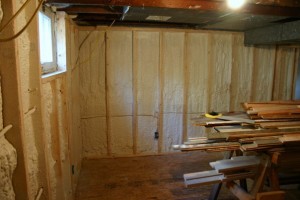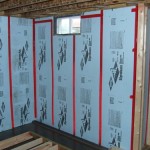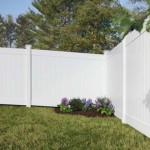Insulating Basement Walls With Spray Foam
Spray Foam Insulation for Basement Walls
 I’ve written quite a few posts on Insulating Basement Walls using rigid foam board insulation. In this article I’d like to share several other sites that discuss using spray foam insulation for basement walls. Spray foam insulation is in my opinion the best option for basement walls if you can afford it.
I’ve written quite a few posts on Insulating Basement Walls using rigid foam board insulation. In this article I’d like to share several other sites that discuss using spray foam insulation for basement walls. Spray foam insulation is in my opinion the best option for basement walls if you can afford it.
Evaluating Insulation Options
Fred over at One Project Closer is preparing to insulate his basement in preparation for a new finished family area. He has written all about his Basement Insulation Options including his selection of spray foam insulation.
Spray Foam Insulation Examples
Two of the house blogs that I read have both featured recent basement insulation projects that used spray foam. Shane over at Shane and Casey has been working on insulating his basement with spray foam. Shane is using a hybrid approach of 1-inch spray foam to seal things up followed by fiberglass insulation. He’s got some great photos and advice based on their experience. Over at groogsblog Greg recently had his basement insulated using spray foam as well. He’s got some great before and after photos and shares his experience with the process as well.
Spray Foam Insulation Cost Analysis
Finally I found some an interesting spray foam insulation cost analysis that Josh put together over at Bungalow Twenty-Three. He compares the price of spray foam to fiberglass insulation based on several contractor bids. If you’re trying to get a better understanding of the price comparison I suggest you read his article.
Photo Credit: Shane & Casey













You should have shown Greg’s photos! I think he has to have at least another foot of height in his basement. But I definitely agree with you, spray foam insulation is wonderful. Good article for those who aren’t familiar with it.
If you use spray foam insulation, do you just spray it directly on the concrete walls with no preparation? Any condensation or mold concerns?
You definitely just spray it directly on the concrete or block. You need to repair any large cracks prior to installation but that’s it. Foam actually locks out moisture and prevents warm moist air from hitting the cold concrete therefore preventing condensation.
Can it be sprayed on to damp walls or do they need to be dry for the foam to stick?
James – I think it really depends on the type of foam that’s being used. Some of the foams will work with no problem while others may experience some chemical limitations.
If you use spray foam to lock out the moisture, is there any chance of a block wall foundation having structural problems because it can’t dry properly? Or, can it dry properly without drying to the inside?
Thanks,
James – Block walls don’t need to “dry out”. All concrete products are actually in a more favorable structural “state” when wet as water is a key component in making cement hydrate to create cement (I know…way too technical).
However, block walls sometimes have trouble with water being trapped inside the open cells (when the cells are not 100% grouted). In that case it’s sometimes better to get the water out (weep holes) than to hold it in the cell where it slowly permeates through the thin concrete walls of the block. By sealing it up with foam it really does alleviate this issue but you HAVE to use closed cell foam.
I hope that helps.
Is spray foam and polycel insulation the same? What is the R-value?
When you framed your walls, how far did you keep the studs from the foundation? It is hard to tell from Greg’s pics, but I would assume that you kept at least an inch so the spray foam could provide a barrier between the foundation and the studs. By the way, this site is great!!!
@ Peter – If you plan on using spray foam then it’s a good idea to leave an inch or two space for the exact reason you mentioned. Thanks for stopping by and enjoying the site.
I have a house that is around 90 years old. The brick seems to have cracks in some of joints, and was recently sprayed for mold after I had some work done. I am looking to frame a room up, and am curious what the best type of insulation would be, and if there is anything else I need to do to prepare the wall for this. As far as I can see there is not a major water issue it is just a very old basement.
Jerome – I suggest you read the following article that goes over the options.
http://www.homeconstructionimprovement.com/insulating-basement-walls/
This is a pretty great site – I’ve learned a lot about insulation already – thanks for all the great content Todd!
I’m looking to finish my walkout basement this year, which has both concrete walls and stud-framed walls (currently with R19 fiberglass batts). It was so cold/drafty this winter in the basement, that I’m considering re-insulating the stud-framed walls, but the cost of spray foaming both concrete & stud-frame is pretty high.
If I could choose to foam either the concrete walls or the stud-framed walls, which would be more beneficial? Are there other strategies to use both spray & rigid to help keep overall cost lower?
Either way I go, I plan to also frame off the concrete walls and add R13 fiberglass batts to help insulate.
Thanks again!
Jeff – Thanks for the kind words. Before you do anything I suggest you read this: http://www.homeconstructionimprovement.com/how-to-insulate-basement-walls/
The trick is effective air sealing and vapor barriers. You should also read this so you understand the reason for the foam: http://www.homeconstructionimprovement.com/vapor-barriers-for-basement-insulation/
If it were my home, and I was being careful about budget, I’d spray the existing stud walls and rim joist. Then I would insulate the concrete walls with foam board as shown in the articles above. Good luck.
Thanks so much for the reply Todd.
I read those articles again & something you said got me thinking: The trick is effective air sealing and vapor barriers.
My basement has poured concrete, molded to have a faux brick face, so the surface is bumpy and has grooves in between “bricks”. I haven’t found much information on how to create a good seal on that type of surface. Some YouTube videos show rigid foam being placed on that type of surface, but they don’t talk much about how the surface contacts the foam.
Is it important to have a good seal against the cement, or are you talking about getting a good seal between foam boards with tape & spray-foaming at the top/bottom?
Just need a good seal on the foam, air behind the foam is perfectly fine. The idea is creating a “barrier” so air doesn’t move from the wet concrete into the framed wall space.
will polyurathane spray foam insulation adhere to a wall that has had a paint on damp proofing applied to it?
Thanks,
Chris
You mean like drylock? Polyurethane foams stick to everything! So much so that they are really tough to keep off finishes when things are sprayed. I’d check with the spray foam company, but unless it reacts in a negative way I can’t see how it won’t.
Todd, all helpful information that is making informed decisions on this topic much easier. I have a “dry” basement and live right on the edge of climate zones 4-5. Using spray foam to insulate my poured concrete walls.
I’m curious if I have had no moisture problems in 20+ years if open cell spray foam is going to be a problem vs closed cell in your opinion. Thanks—sorry if I resurrected an old post, couldn’t see any dates.
Dave – I would NEVER use open cell foam in a basement. Even though you don’t “see” water, there’s far too much moisture in the walls that will get trapped in open cell foam.
Good luck.
I just purchased a ten year old home. The previous owner started the finish process of the basement by studding the entire basement and routing live electrical wire thru these studs to outlets. I want to use closed-cell spray polyurethane foam to insulate but my issue is, the previous owner didn’t leave a 1″-2″ air gap between CMU wall and wood stud. I was wondering, could I use a liquid applied or self-adhered peel and stick air/vapor barrier to the studs before I spray the foam?
Zane – The only issue is trying to get protection behind the studs so the studs don’t rot over time due to moisture. Can you slide the wall away from the block wall? Even with electrical wires it’s possible to cut the wall free and slide it away, then re-nail the top and bottom plates.
Todd-Thank you for the feed back, I will look into sliding the stud walls out. I predict a rather stressful but rewarding operation.
Would using Drylock Extreme:
http://www.drylok.com/products/drylok-extreme-masonry-waterproofer.php
prior to spraying closed cell foam
help create an even better moisture/vapor barrier, or could is possible cause any negative performance issues?
thanks,
Matt
It can’t hurt :)
what about the blown in kind for basements actually the blocks are to have foam sprayed in by usa? Hose is 30 years old and all electric whats thoughts on doing block?